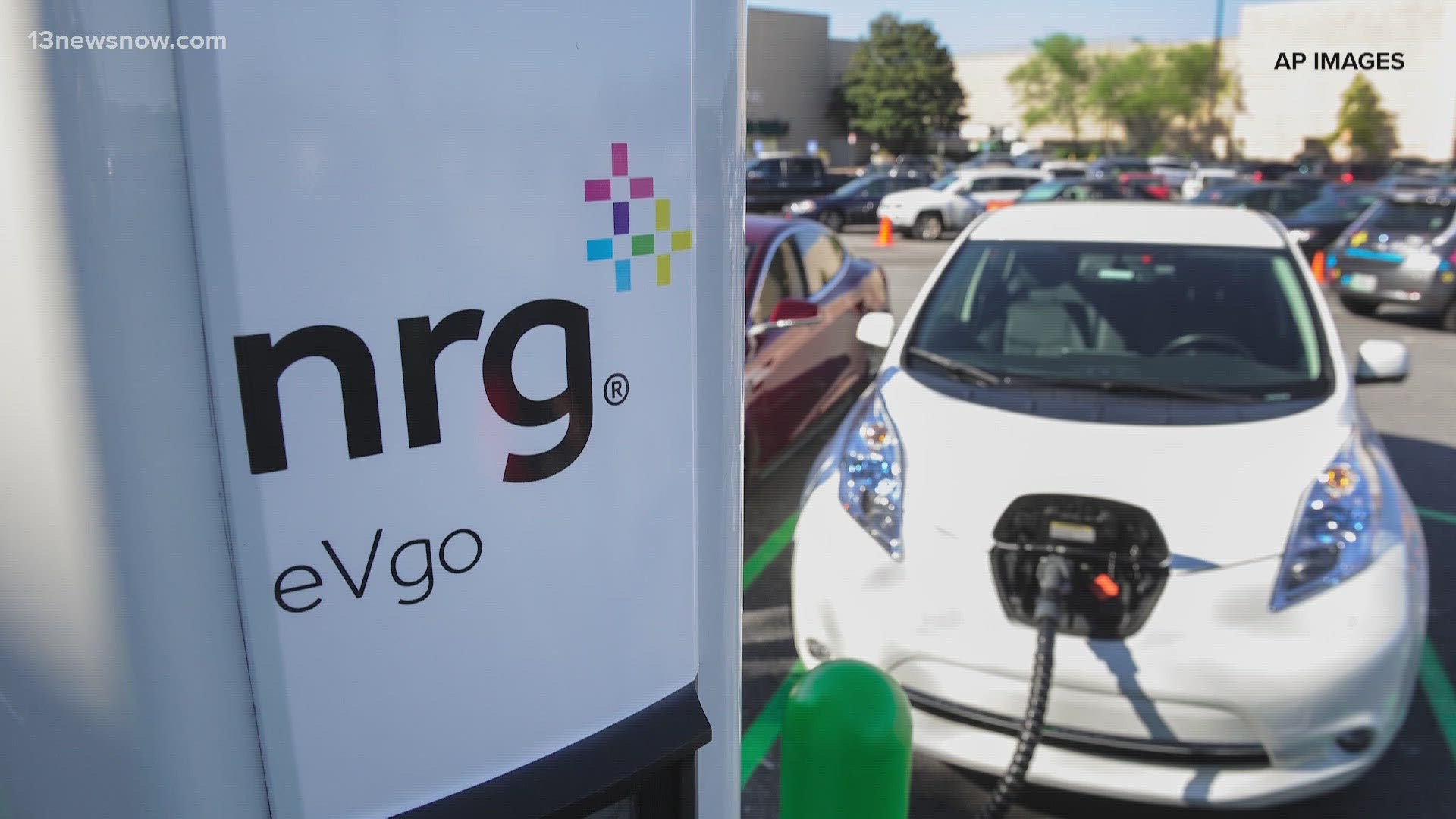NORFOLK, Va. — Virginia’s transition to electric vehicles (EV) continues as the number of EV drivers has doubled in just two years.
There were more than 25,000 EVs registered in Virginia in 2021, according to the U.S. Department of Energy. Today, there are approximately 56,000 registered EVs.
However, the growing fleet of EVs on the road doesn’t mean Virginia’s EV infrastructure has been able to keep up.
Under the Clean Cars law passed in 2021, 35% of new vehicles sold in the state need to be zero-emission by 2026, and 100% need to meet the same requirement by 2035.
With that transition, the demand for EV chargers is quickly growing.
That’s why legislation is advancing in the general assembly to help the Commonwealth keep up with the demand.
House Bill 107 creates the Electric Vehicle Rural Infrastructure program. It will help developers fill in the gaps by installing more EV chargers in underdeveloped, rural areas.
Meanwhile, House Bill 405 establishes design standards for chargers in new residential projects, so neighborhoods will have EV-friendly infrastructure built in for new homebuyers.
Both bills have moved to the state Senate after passing in the state House.
To make the transition easier on consumers financially, Dominion Energy began offering an incentive program to EV owners and businesses that make it cheaper to install charging stations at their homes and places of work.
However, according to a September 2023 Dominion report, no one has signed up to take advantage of the Charging Tariff program.
To give some perspective on cost: electric vehicle chargers come in different levels depending on their speed. Even a level one charger could cost up to $900, with faster, higher-level options ranging from $30,000 to $100,000. These prices don’t include installation costs.
In the meantime, Virginia continues to build its public charging station infrastructure with $100 million from the federal government.

